More than two hundred people, from four continents, representing 28 countries, 31 universities and 14 public and private organizations, met at the University of Algarve, on the 12th and 13th of January, in an international congress that marked the beginning of the extraterritorial strategy from the European University of the Seas (SEA-EU), a European consortium that aims to become a global partnership, with an impact on the blue planet and a more sustainable future.
On the first day, the rector of the University of Algarve, Paulo Águas, welcomed all participants, recognizing the enormous importance of this consortium, followed by an introduction about SEA-EU by Fidel Echevarría, general coordinator of the Alliance SEA-EU, from the University of Cádiz (Spain).
During the program, presentations were made on the main conclusions of SEA-EU 1.0 and on plans for SEA-EU-2.0, which include the offer of several European Diplomas in Association, whether bachelor's degree, master's degree or doctorate.
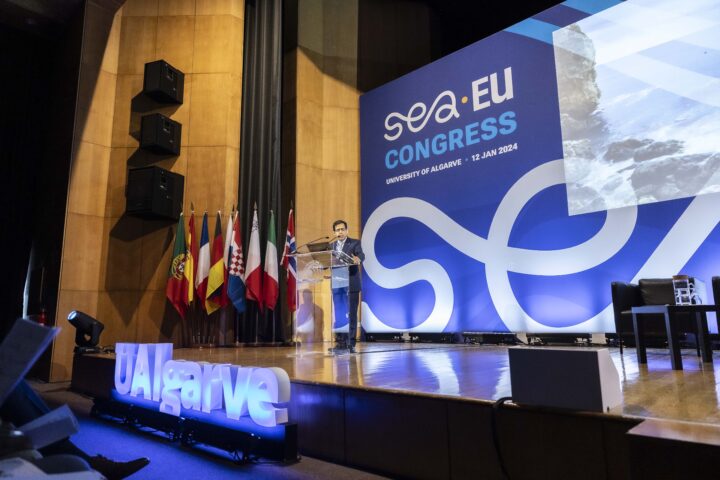
Also noteworthy are the four round tables on “Strong partnerships to face global challenges”, in different geographic regions.
During the first panel, moderated by Patrícia Pinto, pro-rector for the SEA-EU Alliance at UAlg, the main challenges facing the African continent were discussed.
Deans/presidents and/or representatives from several universities were present, namely: University of Hassan I (Morocco); University of Namibe (Angola); Abdelmalek Essaâdi University (Tangier, Morocco) University of São Tomé and Príncipe (São Tomé and Príncipe); Eduardo Mondlane University (Mozambique); University of San Pedro (Republic of Côte d’Ivoire); University of Magdalena (Colombia); Cheikh Anta Diop University (Senegal); and Technical University of the Atlantic (Cape Verde).
This table also included, due to its geographical proximity, the University of Gibraltar.
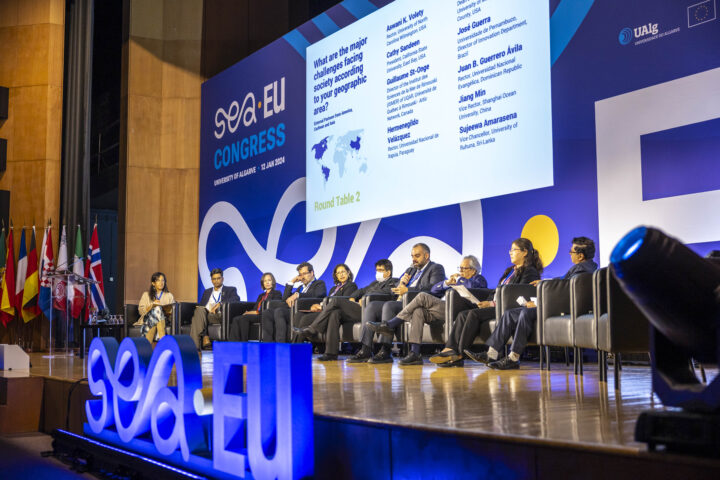
During the afternoon, the round tables were moderated by Alexandra Teodósio, vice-rector for Internationalization, both at UAlg and SEA-EU.
With the participation of external partners from America, the Caribbean and Asia, the main challenges they face were also discussed at the second table.
At this table, leaders from the University of North Carolina Wilmington (USA) were represented; California State University, East Bay (USA); from the University of Quebec, Rimouski – Artico Network (Canada); the University of Maryland, Baltimore County (USA); the National University of Itapúa (Paraguay); from the University of Pernambuco (Brazil); National Evangelical University (Dominican Republic); the University of Ruhuna (Sri-Lanka); and Shanghai Ocean University (China).
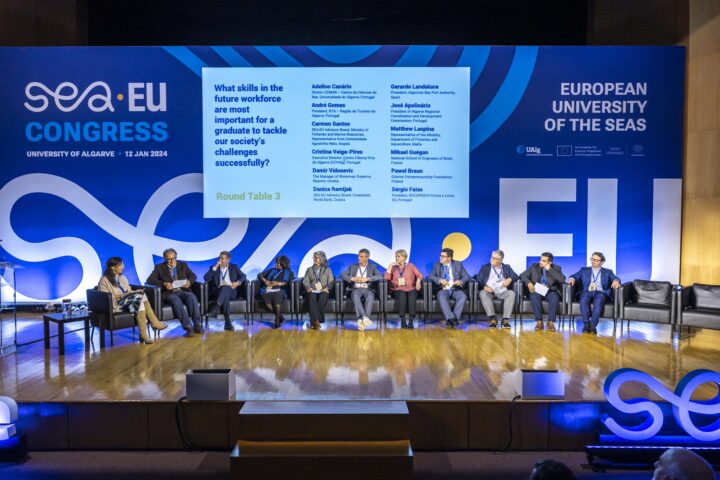
Under the motto “What are the most important skills for a SEA-EU graduate to successfully face the challenges of society in the future?”, at the third round table, the floor was given to the associated partners and members of the SEA-EU Advisory Board. I.
There were 11 speakers: director of the Algarve Marine Science Center (Portugal), President of the Algarve Tourism Region (Portugal); Minister of Fisheries and Marine Resources (Angola); executive director of the Algarve Live Science Center (Portugal); director of Waterman Svpetrvs Resorts (Croatia); consultant at the World Bank (Croatia); Algeciras Bay Port Authority (Spain); vice-president of the Algarve Regional Coordination and Development Commission (Portugal); representative of the Ministry, Department of Fisheries and Aquaculture (Malta); director of the National School of Engineers in Brest (France); and representative of the Foundation for Entrepreneurship in Gdańsk (Poland).
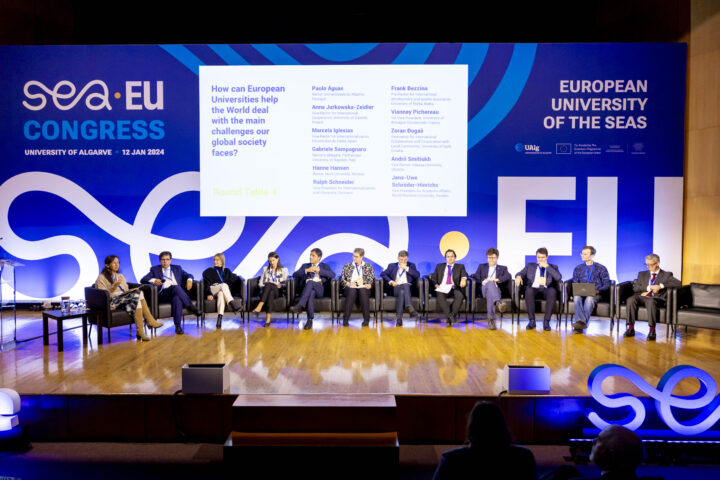
The fourth round table sought to explore “How European universities, like SEA-EU, can contribute to facing the great challenges of global society”, especially in coastal areas.
Thus, 11 speakers, deans and vice-rectors of the Alliance, debated this issue: University of Algarve (Portugal); University of Gdańsk (Poland); University of Cádiz (Spain), Parthenope University of Naples (Italy); University of Nord (Norway); University of Kiel (Germany); University of Malta (Malta); University of Bretagne Occidentale (France); University of Split (Croatia); University of Odesa (Ukraine) and World Maritime University (Sweden).
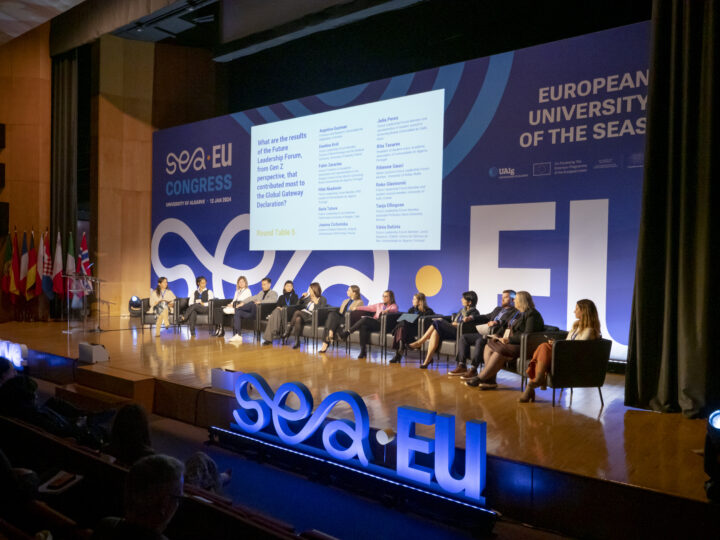
In the last round table, the results of the Future Leaders Forum, which took place in Naples, in October 2023, were presented, with a special focus on the perspective of Generation Z (iGen).
Twelve young speakers, researchers, teachers and students from the universities of Algarve, Malta, Gdańsk, Naples, Cádiz, Split, Nord, Magdalena (Colombia) were able to analyze the importance of the Global Gateway Declaration-GGD and its implementation , as leaders of the future.
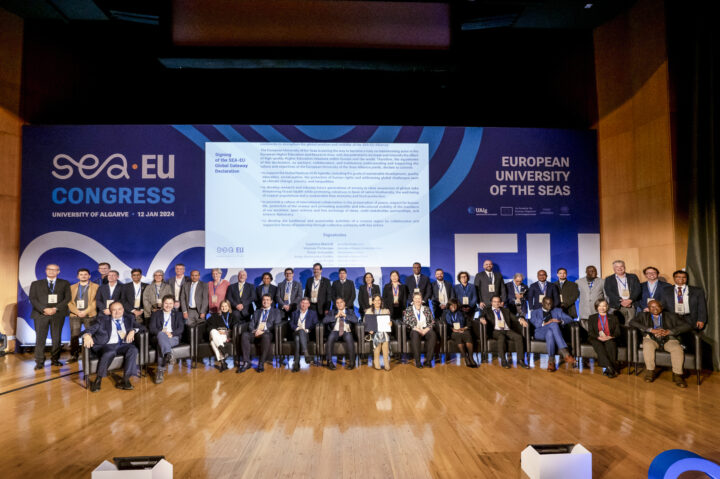
One of the highlights of the SEA-EU congress was the signing of the Global Declaration – GGD. 42 legal representatives signed this important agreement, either from universities in the SEA-EU Alliance or from external academic and non-academic partners and associates.
With this Declaration, the SEA-EU Alliance reaffirms its commitment to sustainable European and international cooperation on common societal challenges, through joint education, research and innovation.
To end this congress, an exhibition entitled “Images – Connecting Coastal Cities by the Sea” was opened, with a brief statement by Polish painter and professor Aneta Iwona Oniszczuk-Jastrząbek, from the University of Gdańsk, Poland.
Other cultural activities enriched the event, such as the “Concerto Orquestral dos Mares” by Orquestra do Algarve.
The official closing of the congress included interventions by Ana Cristina Perdigão, general director of the National Agency Erasmus + Education and Training, and Elvira Fortunato, Minister of Science and Higher Education of Portugal.
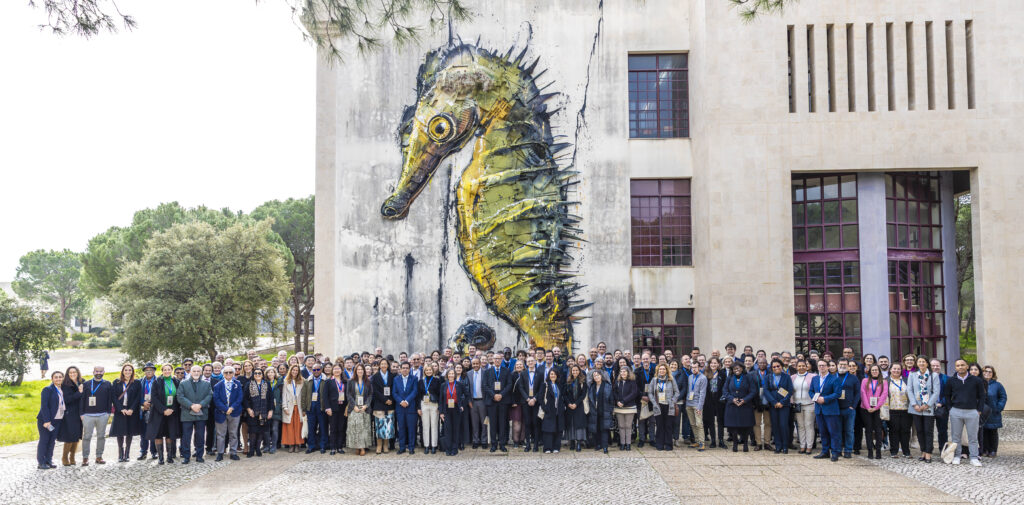
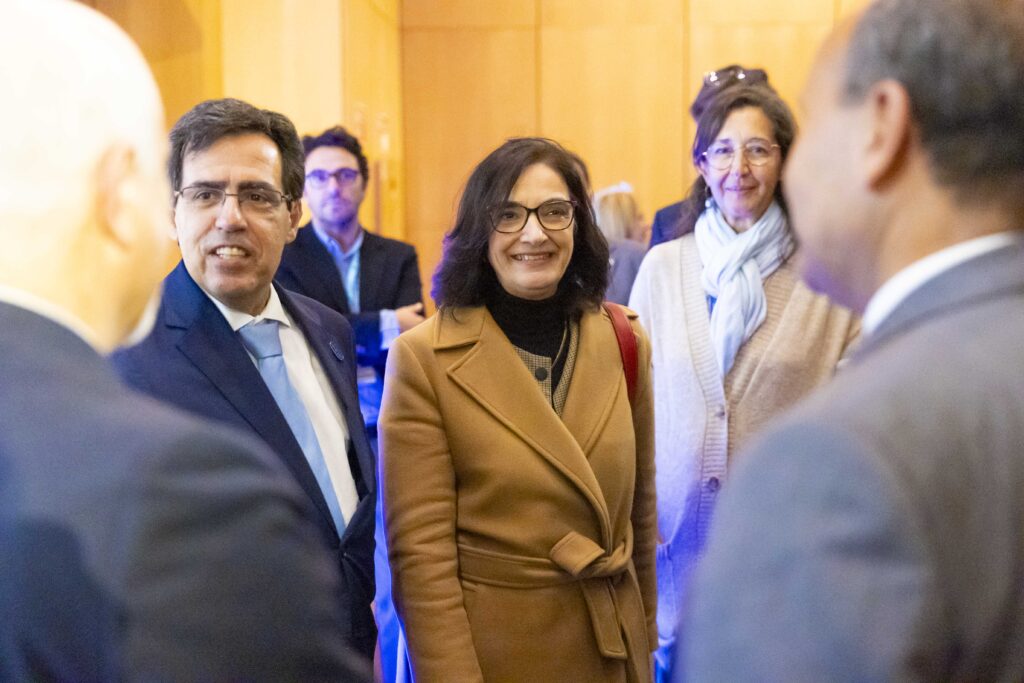
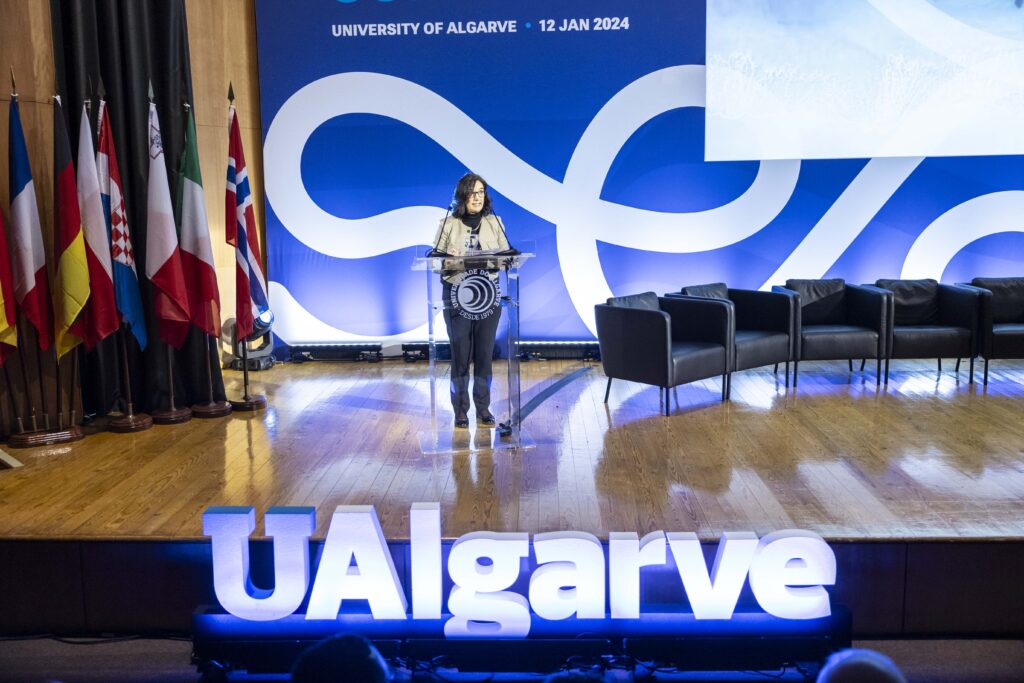
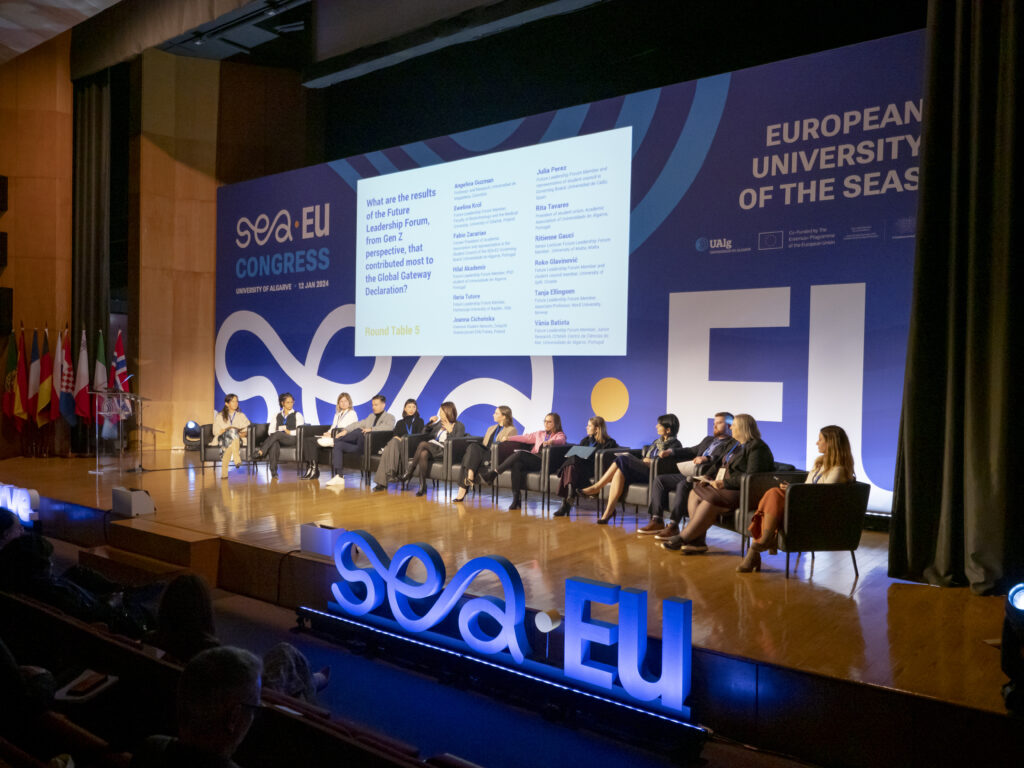
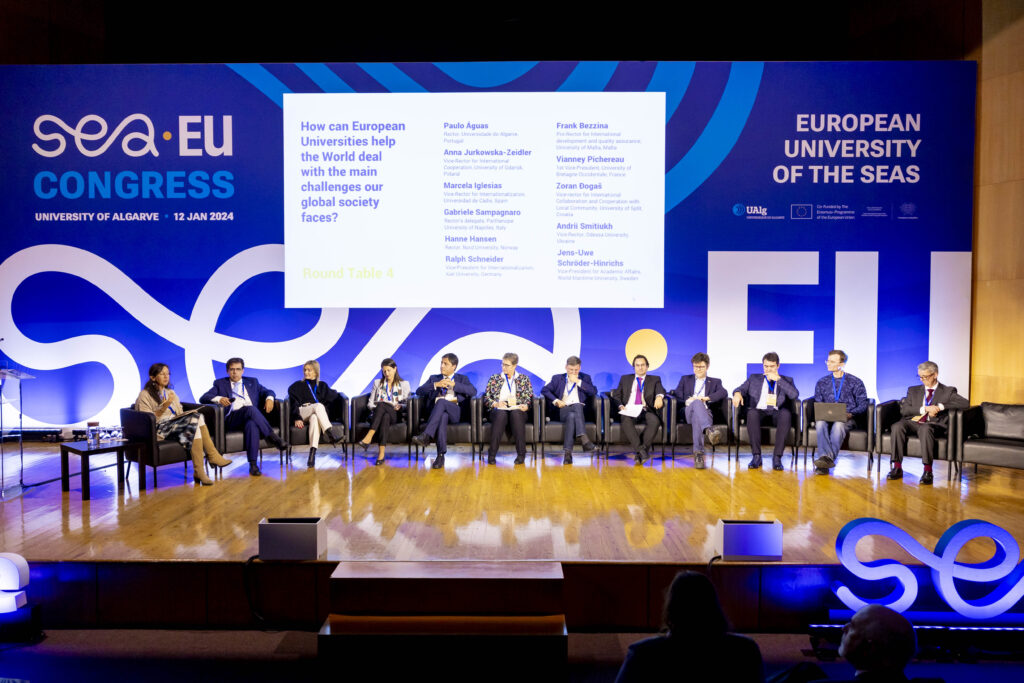
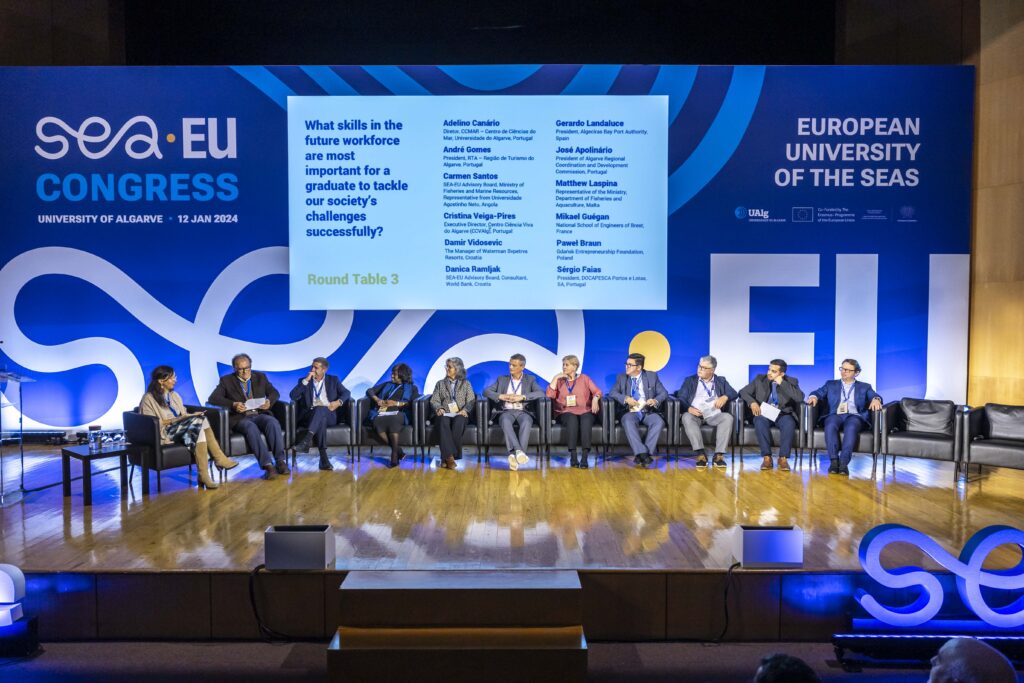
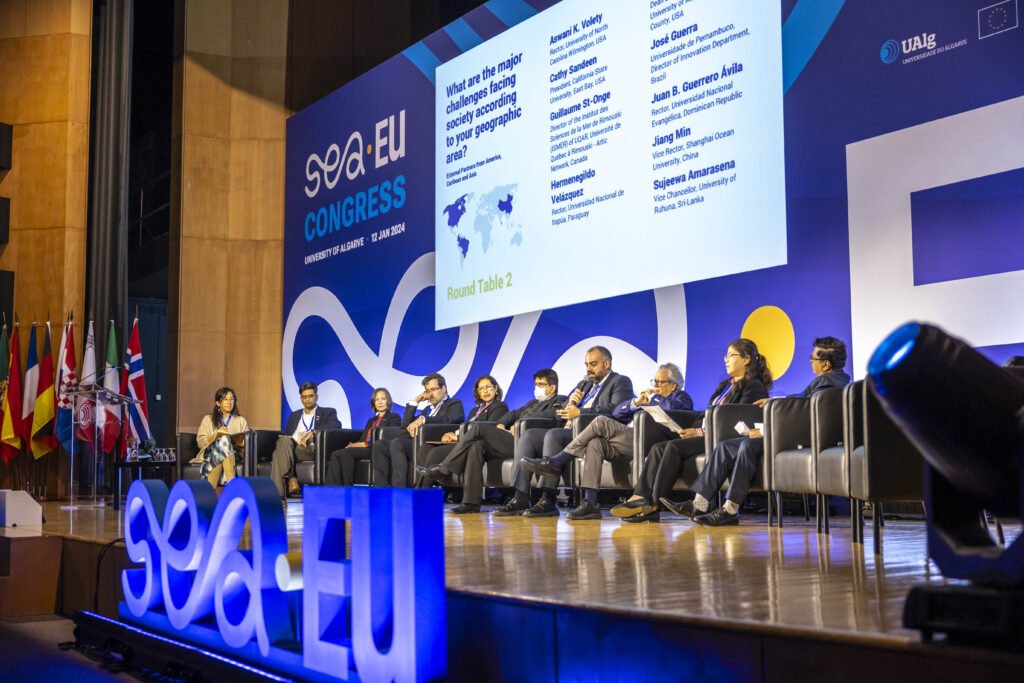
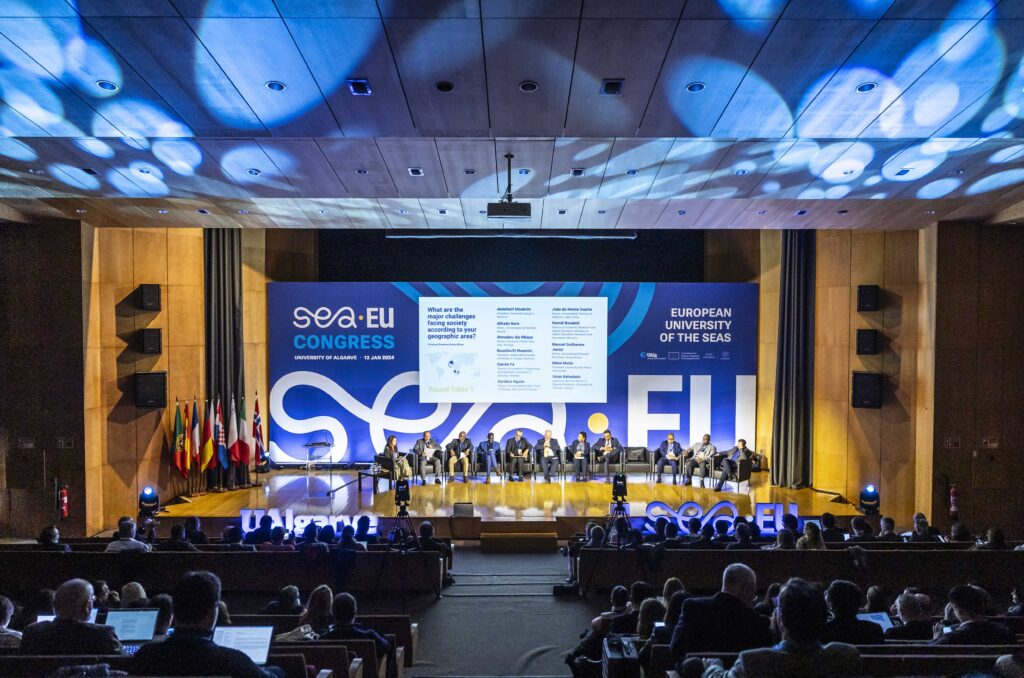
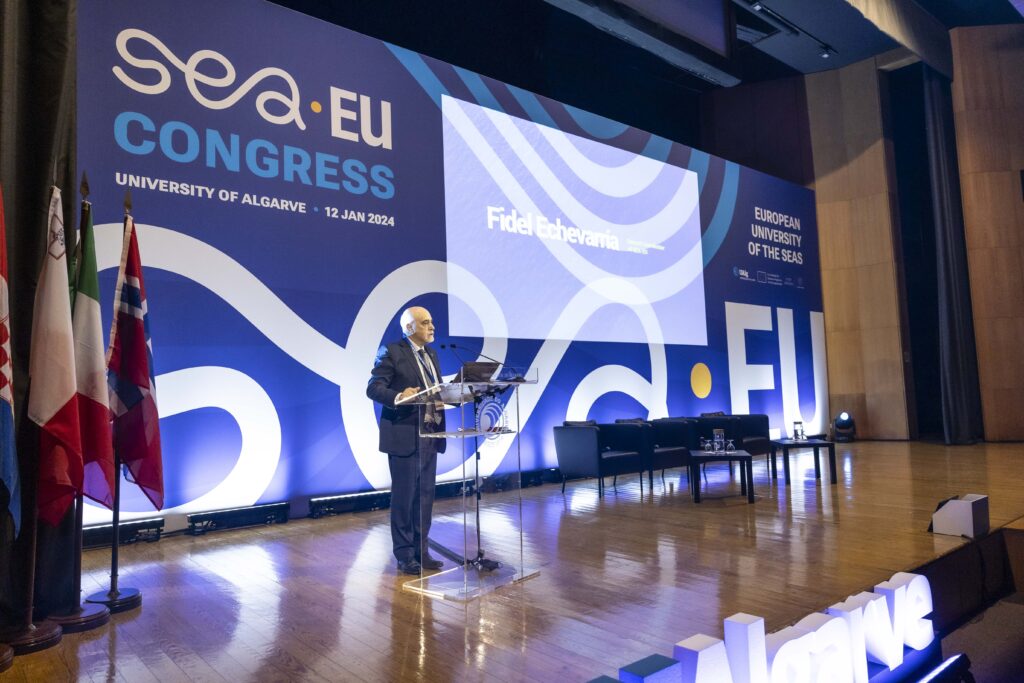
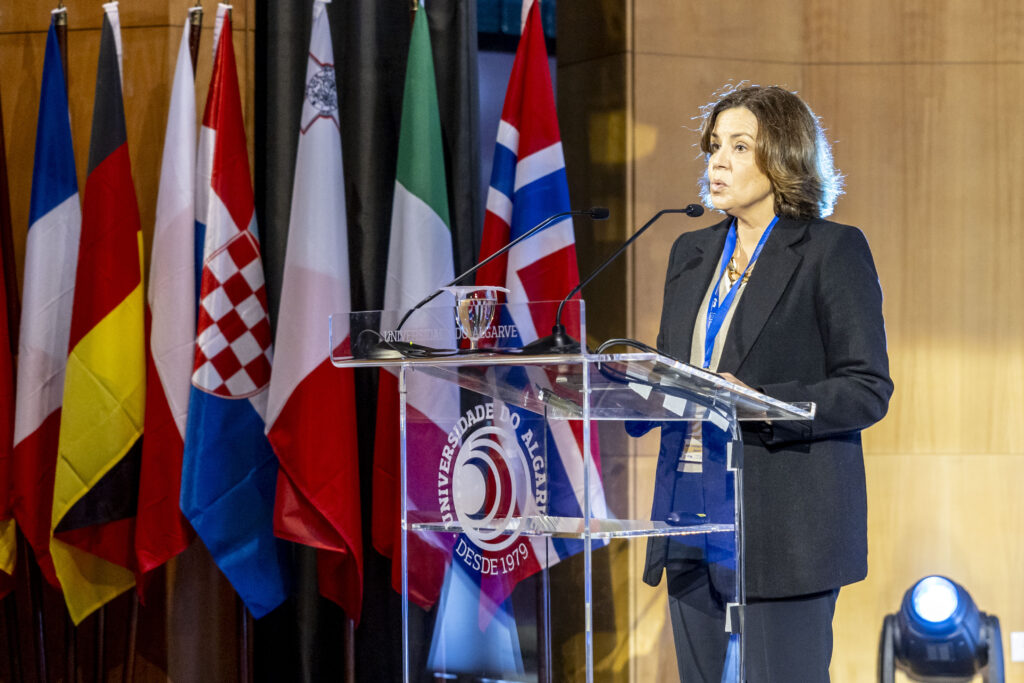
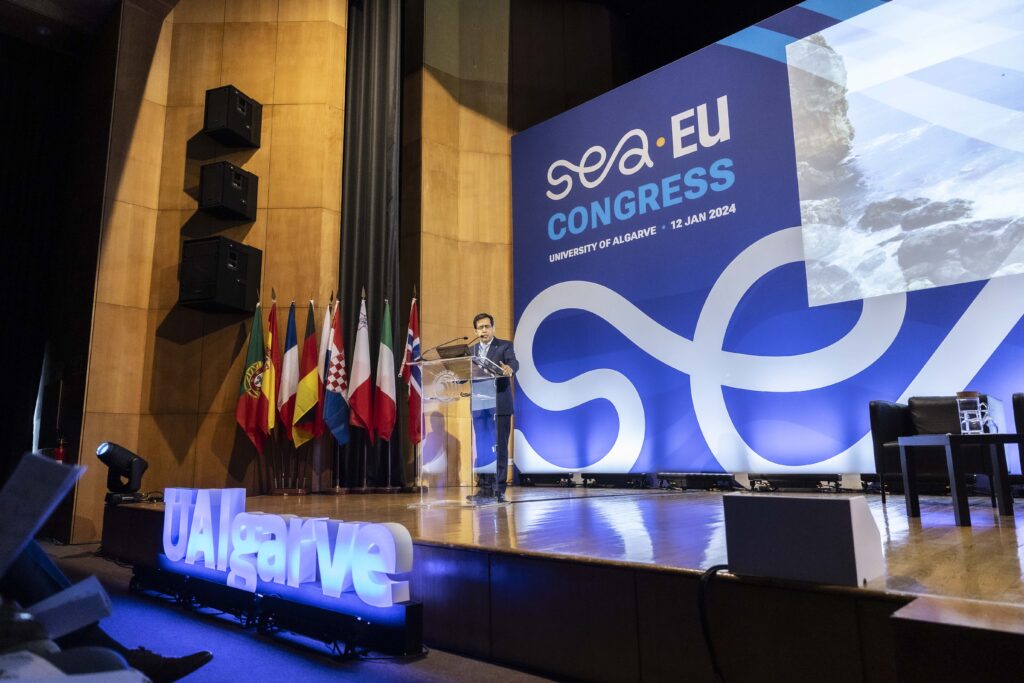
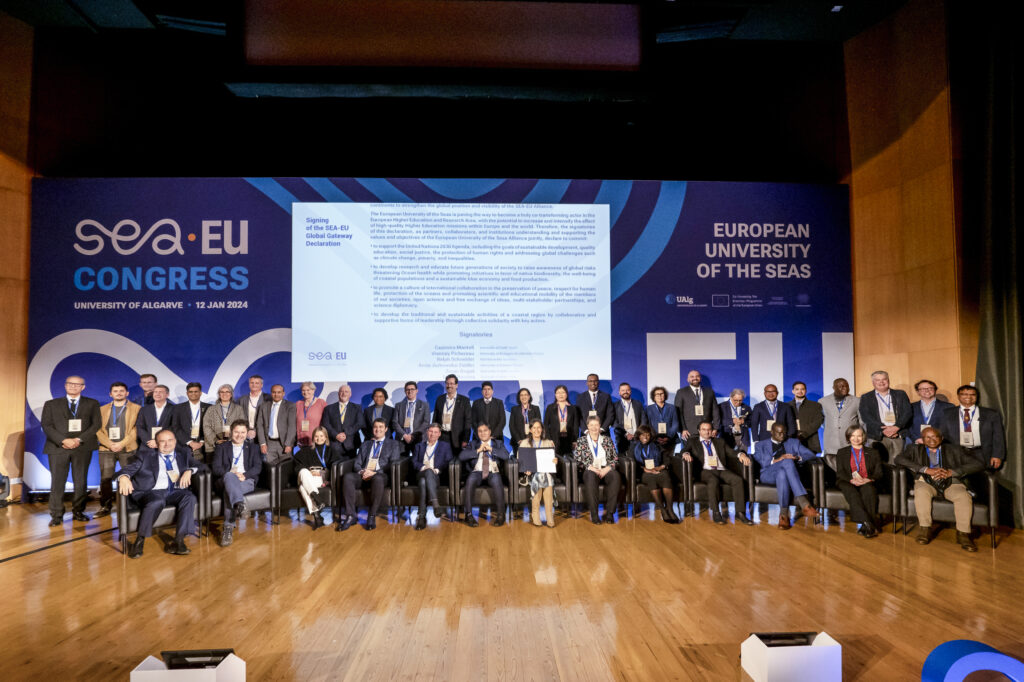


















Comments